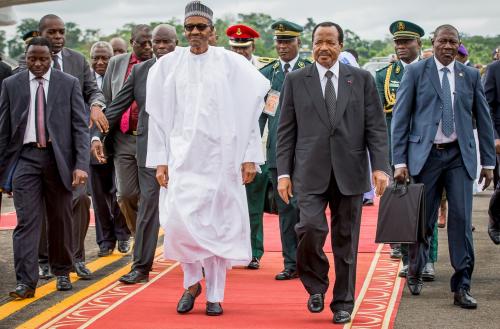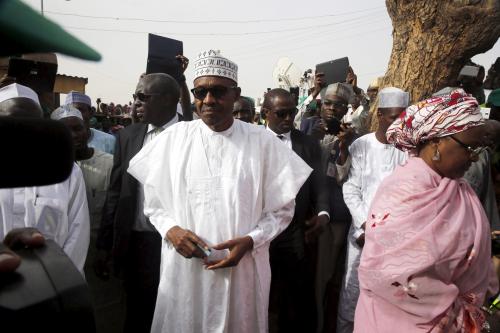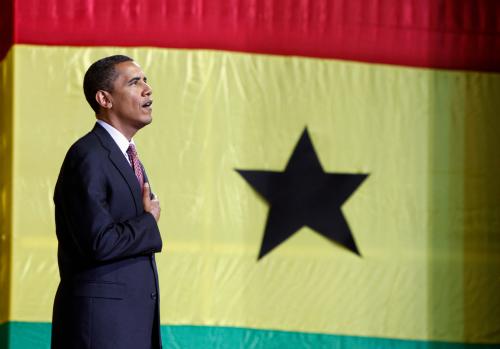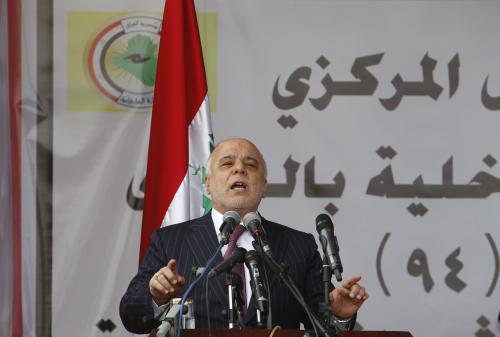President Obama to visit Africa for fourth time
On Monday of this week, the White House announced that President Obama will travel to sub-Saharan Africa in July of this year. The exact dates and full itinerary are not yet clear, but the trip will coincide with President Obama’s attendance at the 2015 Global Entrepreneurship Summit being hosted by Kenya. This will be President Obama’s fourth trip to sub-Saharan Africa, which the White House has noted is more than any other U.S. president has made while in office. In addition to attendance at the summit, President Obama’s visit will likely include bilateral dialogue with regional leaders on a range of issues, including East Africa’s precarious security situation, the Obama administration’s Power Africa program, as well as reinforcement of the vision the president laid out as part of the August 2014 U.S.-Africa Leaders Summit. High among these priorities has been President Obama’s quest to increase U.S.-Africa trade. With the African Growth and Opportunity Act (AGOA) up for renewal by Congress this year, Americans might be looking at Africa more seriously as a major trade frontier. In addition, in February 2015, the U.S. signed a large-scale deal to support African businesses access American markets for agricultural products. However, despite progress, sub-Saharan Africa is one of the only parts of the world where the U.S. does not have a free trade agreement and interim steps, including U.S. Bilateral Investment Treaties, currently exclude Africa’s largest commercial markets. Support for the Global Entrepreneurship Summit was listed as a key aspect of U.S. commercial policy in the region, but it remains to be seen how this event will support the U.S.’s broader agenda. Other suggestions for President Obama’s trip to Africa can be found in a recent blog from AGI Senior Fellow Mwangi Kimenyi.
Muhammadu Buhari wins Nigerian presidential elections
This week marked a historical event for Africa’s top economy. For the first time since Nigeria became independent, an opposition party has democratically transitioned to power. On Tuesday, the Independent National Electoral Commission (INEC) announced that Muhammadu Buhari from the All Progressives Congress (APC) won the elections by more than 2.5 million votes, earning 54 percent of electoral votes. While concerns were raised over the ruling party’s willingness to relinquish power after 16 years of rule—as the transfer of power has historically been an issue in Nigeria—incumbent President Goodluck Jonathan called his opponent to concede defeat and congratulate him on his victory in a move widely praised by the international community. Many observers see this peaceful passing of power through a democratic electoral process in Africa’s most populous nation as setting an example for the numerous upcoming elections through the continent.
President-elect Buhari gave his acceptance speech on Wednesday in which he set out his agenda for the next several months. During his speech in Abuja, Buhari praised Nigerians for having “embraced democracy,” while also citing two significant threats to democracy: Boko Haram and the “evil of corruption.” Buhari stated that his administration, by also collaborating with Chad, Cameroon, and Niger, will spare no effort in the fight against terrorism in northeast Nigeria. Buhari, largely seen as not corrupt, also called corruption “another form of evil that is even worse than terrorism” and declared that corruption will not be tolerated within his administration.
For more information on the outcomes of the Nigerian elections and their implications for the country, please see AGI Senior Fellow Mwangi Kimenyi’s piece on Africa in Focus: Nigeria 2015 presidential election: Significance and challenges ahead
Kenyan graft report accuses 175 officials of corruption, and al-Shabab attacks Garissa University College
On Tuesday, Kenya’s Ethics and Anti-Corruption Commission publicly released a report identifying 175 government officials who have allegedly engaged in an array of corrupt practices, including bribery, abuse of office, and violations of procurement laws on government projects. Two notable cases cited in the report involve cabinet-level ministers who facilitated irregularly awarded contracts on high-profile infrastructure projects, including a 320 billion Kenyan shilling ($3.5 billion) contract for the construction of the standard gauge railway and a $500 million contract to Chinese company Sinopec Corp. to construct a pipeline. Since the report’s release, five cabinet members have already temporarily stepped down from their posts in order to allow ongoing investigations to conclude. In 60 days the commission will announce any formal charges that will be brought against the named officials under the Anti-Corruption and Economic Crimes Act.
In other news, a tragic attack on Garissa University College in Kenya has left 147 people dead, making this the deadliest terror attack on Kenyan soil since the bombing of the U.S. embassy in Nairobi in 1998, which killed 224 people. The Somali Islamic extremist group al-Shabab has claimed responsibility for the raid, its second major attack in two years, including the raid on the Westgate mall in 2013. The United Nations and the United States have both condemned the attack, and the White House pledged its continued support to Kenya in battling al-Shabab.






Commentary
Africa in the news: President Obama plans fourth visit to Africa, Buhari wins Nigerian election, and Kenyan commission tackles corruption
April 3, 2015